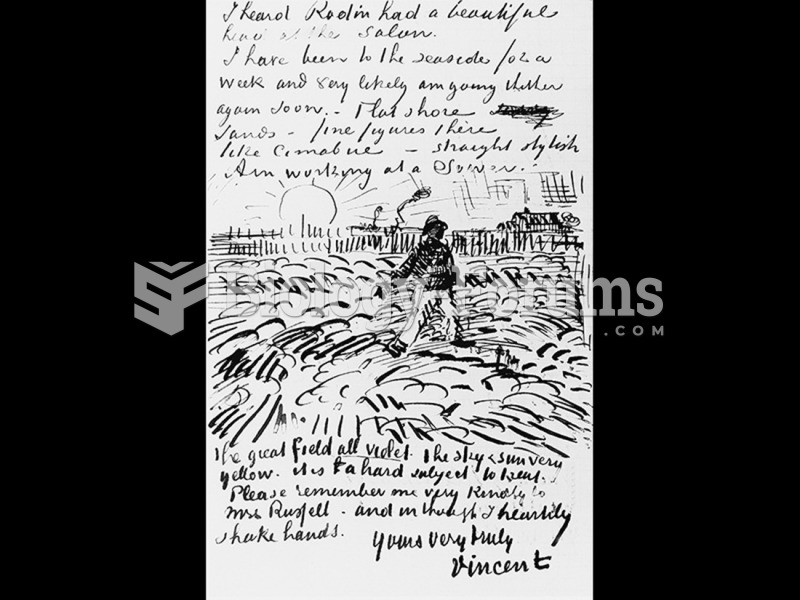|
|
|
The cure for trichomoniasis is easy as long as the patient does not drink alcoholic beverages for 24 hours. Just a single dose of medication is needed to rid the body of the disease. However, without proper precautions, an individual may contract the disease repeatedly. In fact, most people develop trichomoniasis again within three months of their last treatment.
As the western states of America were settled, pioneers often had to drink rancid water from ponds and other sources. This often resulted in chronic diarrhea, causing many cases of dehydration and death that could have been avoided if clean water had been available.
Urine turns bright yellow if larger than normal amounts of certain substances are consumed; one of these substances is asparagus.
Since 1988, the CDC has reported a 99% reduction in bacterial meningitis caused by Haemophilus influenzae, due to the introduction of the vaccine against it.
Vaccines cause herd immunity. If the majority of people in a community have been vaccinated against a disease, an unvaccinated person is less likely to get the disease since others are less likely to become sick from it and spread the disease.
 The vulva, sagittal section illustrating how the labia majora and labia minora cover and protect the
The vulva, sagittal section illustrating how the labia majora and labia minora cover and protect the
 The “Flat Head” (Chinook) Indians acquired their name through shaping in infancy, as shown in a diag
The “Flat Head” (Chinook) Indians acquired their name through shaping in infancy, as shown in a diag
 A well-folded letter fits easily into the envelope and is easily removed by the person who receives ...
A well-folded letter fits easily into the envelope and is easily removed by the person who receives ...




